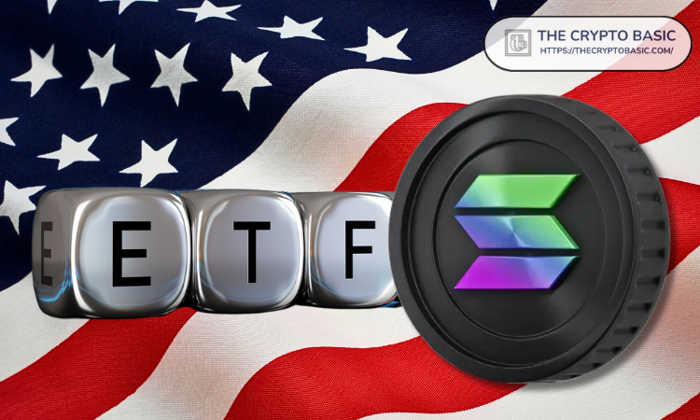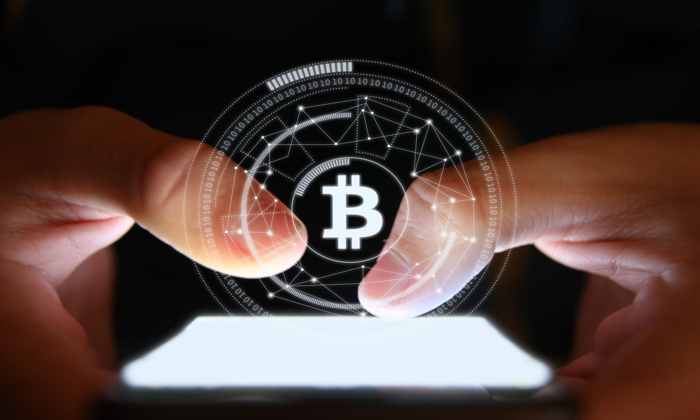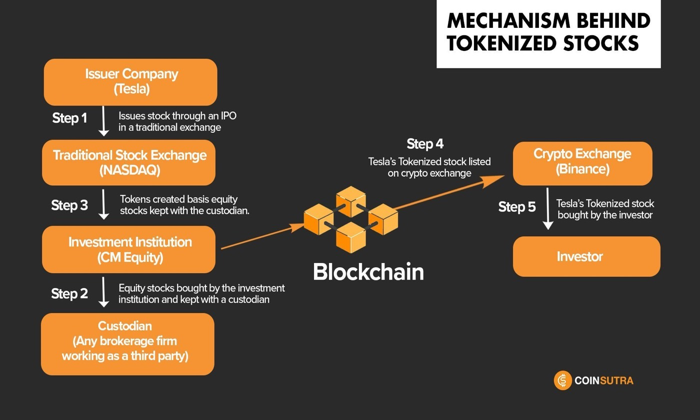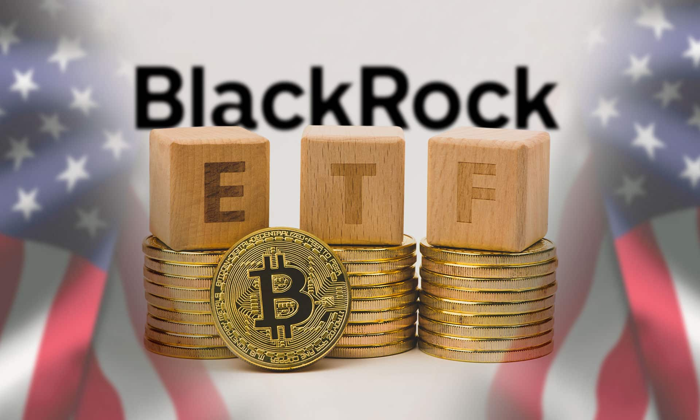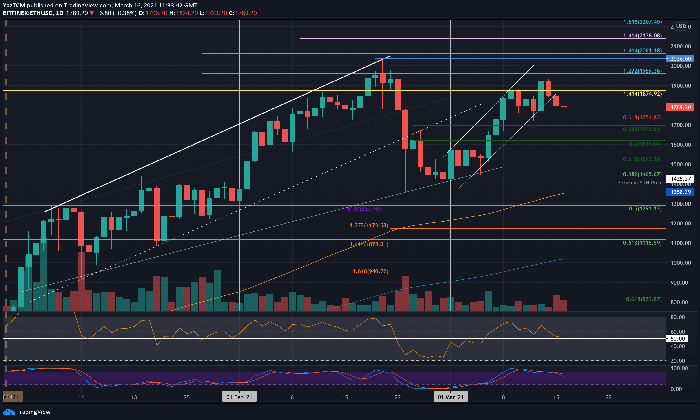Changpeng Zhao, the founder of Binance, has officially applied for a pardon from Donald Trump regarding his money laundering conviction, a move that has stirred significant attention in the cryptocurrency community. Previously, Zhao, commonly known as CZ, had denied such reports, but in a recent podcast appearance, he confirmed that his legal team has filed the necessary documents to seek clemency. Citing the positive precedent set by Trump’s pardon of BitMEX founders, Zhao expressed that he would not oppose the idea of receiving a pardon, especially in light of his substantial contributions to both Binance and the wider financial landscape. This recent Binance news reveals not just Zhao’s personal aspirations but also reflects the complex interplay between cryptocurrency regulations and enforcement in the United States. As the Binance.US CEO navigates these legal waters, his situation is a fascinating case study of the evolving intersection between technology and law in the cryptocurrency world.
In a surprising development, Changpeng Zhao, the architect behind the global cryptocurrency exchange Binance, has made headlines with his pursuit of a pardon from former President Donald Trump for his conviction related to money laundering. Initially dismissing earlier allegations about his intentions, Zhao, during a podcast discussion, disclosed that his attorneys are actively seeking clemency on his behalf. Such a pardon could significantly alter Zhao’s role within Binance.US, allowing him to engage in management further down the line. By setting this legal motion in play, Zhao follows a notable trend in the crypto space, where regulatory challenges and personal legal battles often intertwine in high-profile cases. This news not only highlights Zhao’s controversial legal journey but also sheds light on the ongoing challenges faced by cryptocurrency leaders as they traverse the murky waters of compliance and governance.
Changpeng Zhao’s Pardon Application Explained
Changpeng Zhao, the founder of Binance, made headlines recently by confirming his application for a pardon from former President Donald Trump concerning his prior money laundering conviction. Initially, Zhao dismissed rumors about the pardon application, but he revealed during a Farokh Radio podcast that he had indeed filed the necessary paperwork. Zhao stated on May 6 that he ‘wouldn’t mind’ receiving a pardon, an admission that marked a significant shift from his previous stance. His lawyers are actively working on the application, suggesting a serious intent behind this move.
Zhao’s decision to apply for this pardon came after notable media outlets like Bloomberg and The Wall Street Journal reported in March about his intentions amidst a potential business agreement between the Trump family and Binance.US. He acknowledged that, despite having initially denied these claims, the nature of the ongoing discussions prompted him to formalize his request for a pardon. His references to past pardons granted to BitMEX founders by Trump indicate Zhao’s belief in the possibility of a favorable outcome for his own situation.
The Implications of a Pardon for Zhao and Binance.US
A pardon from Donald Trump would hold significant implications for Changpeng Zhao, especially regarding his ability to engage in business activities within the cryptocurrency sector through Binance.US. While the U.S. Department of Justice noted that a pardon does not erase Zhao’s money laundering conviction, it could open the door for him to resume management roles, which is pivotal for his influence in the rapidly evolving world of crypto finance. Such a scenario would not only impact Zhao’s career trajectory but could also affect Binance’s operations as a leading cryptocurrency exchange.
The relationship between Wang and Binance is multifaceted, particularly given Zhao’s notable stake in the company even after stepping down as CEO. Although he has stated that he has ‘no plans’ to return to the CEO position, Zhao’s re-entry into a management capacity could rekindle investor confidence, especially as Binance navigates regulatory scrutiny in numerous regions. The combination of regulatory compliance and Zhao’s entrepreneurial experience could be a game changer for Binance.US as it aims to solidify its presence in the competitive cryptocurrency landscape.
Historical Context of Pardons in Cryptocurrency
Pardons within the cryptocurrency arena have garnered increasing attention, particularly in light of recent high-profile convictions and subsequent applications for clemency. The pardon granted to BitMEX founders serves as a pivotal reference point for Zhao and others facing similar challenges in the industry. Zhao’s acknowledgment that he is ‘the only person in U.S. history’ to serve prison time for a Bank Secrecy Act violation underscores a unique intersection of legal ramifications and the burgeoning cryptocurrency market’s growth.
As cryptocurrency continues to face rigorous scrutiny from regulators, the potential for pardons to reshape public perception and influence future regulatory approaches is noteworthy. For example, Trump’s approval of pardons has drawn mixed responses from both supporters and critics of cryptocurrency, suggesting that these actions could either bolster or hinder the industry’s legitimacy. This evolving narrative raises critical questions about accountability and the regulatory landscape in which cryptocurrency exchanges like Binance operate.
Zhao’s Future in Cryptocurrency Regulation Post-Pardon
Post-conviction, Changpeng Zhao has not only sought a pardon but has also embraced advisory roles in countries like Pakistan and Kyrgyzstan, focusing on cryptocurrency regulation and blockchain technology implementation. Engaging with these nations indicates Zhao’s commitment to leveraging his experience to influence regulatory frameworks positively. His insights and previous challenges with U.S. authorities could provide valuable lessons for emerging markets navigating cryptocurrency regulations.
The potential impact of a pardon could further elevate Zhao’s role in these advisory capacities, possibly enhancing his status as a thought leader within the global cryptocurrency community. If granted a pardon, Zhao may emerge as a pivotal figure in advocating for cohesive regulation across borders, establishing Binance.US as a benchmark for compliance and innovative growth in the sector. His ability to navigate the complex landscape of cryptocurrency law will be crucial as the industry continues to evolve.
Changing Dynamics of Cryptocurrency Leadership
The leadership dynamics within cryptocurrency exchanges are rapidly evolving, and Changpeng Zhao’s case highlights the impact of legal challenges on executive roles. Following his money laundering conviction and subsequent resignation as CEO, Zhao’s involvement in Binance has shifted from a hands-on approach to more of an advisory capacity. This change signifies a broader trend in which cryptocurrency leaders are increasingly navigating the delicate balance between regulatory scrutiny and operational oversight.
As Zhao steps into advisory roles while applying for a pardon, it raises significant questions about the future of leadership in cryptocurrency. The traditional perception of an executive role may need to adapt as regulatory pressures mount. Leaders within the cryptocurrency space may need to prioritize compliance and strategic planning over authoritative control, reshaping the way exchanges operate. This paradigm shift could influence how companies like Binance approach leadership structures moving forward.
Public Perception of Zhao’s Pardon Application
The public response to Changpeng Zhao’s pardon application reflects broader attitudes toward cryptocurrency and its prominent figures. While some view Zhao as a pioneer in the industry who deserves a second chance, others criticize him for his previous legal troubles and the implications they carry for trust in the cryptocurrency ecosystem. This polarized reception is indicative of ongoing skepticism around regulatory compliance and ethical standards within the sector.
Zhao’s candidness about his situation may resonate with supporters who advocate for fairness and due process, potentially humanizing his experiences within the industry. However, the public also remains vigilant about accountability, particularly in light of high-profile convictions in the cryptocurrency realm. Ultimately, how Zhao navigates this perception as he pursues a pardon could influence his legacy and that of Binance, shaping how cryptocurrency leaders are viewed by the public.
Analyzing the Financial Fallout of Zhao’s Conviction
The financial ramifications of Changpeng Zhao’s conviction extend beyond his personal fines and penalties; they also affect Binance’s standing within the cryptocurrency market. The $4.3 billion settlement with U.S. authorities, including Zhao’s contribution of $50 million, is a substantial financial burden that has raised concerns among investors regarding the exchange’s future viability. The uncertainty surrounding Zhao’s leadership following his resignation further compounds these concerns, drawing attention to the need for effective governance in the wake of legal issues.
Investors’ confidence may be at risk as Binance navigates regulatory challenges, and the outcome of Zhao’s pardon application could play a pivotal role in restoring that confidence. If granted, a pardon may help reaffirm trust and stability within Binance, providing a pathway for recovering its reputation post-conviction. Conversely, any further legal setbacks could lead to hesitancy from both investors and regulators, illustrating the delicate balance between personal accountability and corporate resilience in the fast-paced cryptocurrency market.
Impacts of Pardons on Future Cryptocurrency Regulations
The potential effects of pardons on future cryptocurrency regulations cannot be underestimated, particularly as figures like Changpeng Zhao pave the way for dialogue between the industry and regulatory bodies. Zhao’s pardon application serves as a case study for how various stakeholders in the cryptocurrency space may respond to legal challenges. Through examining past pardons, it becomes apparent that there is a growing conversation about the need for more tailored regulations that respect the innovative nature of cryptocurrency while ensuring compliance.
The public discourse surrounding Zhao’s situation may catalyze broader reflections on how past infractions are treated within the context of a rapidly evolving industry. As more entrepreneurs in the cryptocurrency space face challenges, the outcomes of these cases could shape regulatory perspectives and lead to more nuanced approaches to legislation. The intersection of criminal justice and financial governance in the realm of cryptocurrency is likely to continue evolving as stakeholders demand accountability and clarity.
Conclusion: Navigating the Future Beyond Zhang’s Pardon
The conclusion of Changpeng Zhao’s pardon application journey may signal new beginnings not just for him but also for the larger cryptocurrency industry. As Zhao explores advisory roles and contemplates his future within Binance.US, his experiences could inform the path forward for other leaders facing regulatory challenges. The evolving landscape demands resilience and innovation, qualities that Zhao has exhibited throughout his career.
Ultimately, how Zhao manages the fallout from his conviction will contribute to an ongoing narrative about redemption and accountability within the cryptocurrency sector. His journey may inspire a more constructive dialogue around regulatory frameworks and the acceptance of second chances for industry leaders, potentially reshaping the future of cryptocurrency governance and its perception by the public. The outcomes of his endeavors could set important precedents for the relationship between the cryptocurrency community and regulatory authorities.
Frequently Asked Questions
What is the status of Changpeng Zhao’s pardon application related to his money laundering conviction?
Changpeng Zhao, the founder of Binance, has confirmed that he applied for a pardon from Donald Trump for his money laundering conviction. After initially denying reports of the application, Zhao stated during a podcast that he wouldn’t mind receiving a pardon, which his lawyers have already filed. This comes after his guilty plea in November 2023 as part of a settlement with U.S. authorities.
Did Changpeng Zhao confirm he applied for a pardon for money laundering?
Yes, Changpeng Zhao confirmed during an episode of Farokh Radio that he applied for a pardon related to his money laundering conviction. He had previously disputed reports about the application but acknowledged that his lawyers submitted the necessary paperwork after news broke about his situation.
How could a pardon from Donald Trump affect Changpeng Zhao’s career?
If Changpeng Zhao receives a pardon from Donald Trump, it could potentially allow him to take on a management or operational role at Binance.US. Although a pardon would not erase his conviction for money laundering, it might enable him to be more active within the cryptocurrency industry and regain his influence in Binance.
Why did Changpeng Zhao apply for a pardon from Trump?
Changpeng Zhao applied for a pardon from Donald Trump following his money laundering conviction, partly inspired by Trump’s past pardons of other cryptocurrency founders like Arthur Hayes of BitMEX. Zhao saw the application as a viable option to improve his situation after discussions around his conviction and its impact on his career.
What are the implications of Changpeng Zhao’s money laundering conviction?
Changpeng Zhao’s money laundering conviction imposes significant implications on his ability to operate as the CEO of Binance. Following his guilty plea in November 2023, he was sentenced to prison and resigned as CEO. His pardon application seeks to alleviate some restrictions, enabling him to participate more actively in crypto regulatory discussions.
Did Changpeng Zhao serve time for his Bank Secrecy Act violation?
Yes, Changpeng Zhao served time due to a conviction related to a Bank Secrecy Act violation. He pleaded guilty to money laundering in November 2023 and was sentenced to four months in prison, marking a significant moment in his career as the CEO of Binance.
What inspired Zhao to pursue a pardon for his conviction?
Zhao was inspired to pursue a pardon after learning about Trump’s previous pardons of BitMEX founders and discussions regarding his application in the context of business dealings with Binance.US. He referenced the ongoing media reports about his situation as a motivation to make the application official.
How has Changpeng Zhao’s role changed following his conviction?
After his conviction for money laundering and subsequent prison sentence, Changpeng Zhao has shifted his focus from being CEO of Binance to advisory roles in countries like Pakistan and Kyrgyzstan, where he is helping with cryptocurrency regulation and blockchain implementation.
| Key Point | Details |
|---|---|
| Pardon Application | Changpeng Zhao applied for a pardon from Donald Trump for his money laundering conviction. |
| Initial Denial | Zhao initially disputed reports of his pardon application before confirming it. |
| Confirmation Source | His confirmation was made during a podcast episode on May 6. |
| Legal Representation | Zhao’s lawyers filed the pardon application paperwork. |
| Inspiration for Application | Zhao was inspired by Trump’s pardoning of BitMEX founders. |
| Money Laundering Conviction | Zhao pleaded guilty to money laundering in November 2023, resulting in a $4.3 billion settlement. |
| Prison Sentence | He served four months in prison as part of his plea agreement. |
| Future Plans | Despite being a shareholder, Zhao has no plans to return as CEO of Binance. |
| Advisory Roles | Since his release, Zhao has started working in advisory roles in Pakistan and Kyrgyzstan. |
Summary
The Changpeng Zhao pardon application is a significant point of discussion following his money laundering conviction. By applying for a pardon from Donald Trump, Zhao aims to potentially regain a management role within Binance.US. His recent admissions during a podcast indicate a shift from initial denial to acceptance of ongoing inquiries about his legal situation. While a pardon may not erase his conviction, it could facilitate his involvement in the cryptocurrency industry, offering further insights into his evolving career post-incarceration.
Changpeng Zhao, the founder of Binance and a prominent figure in the cryptocurrency world, has confirmed that he has submitted a pardon application to Donald Trump related to his recent money laundering conviction. This move comes after Zhao, also known as CZ, initially denied earlier reports about seeking clemency. During an episode of the Farokh Radio podcast, Zhao expressed that he “wouldn’t mind” receiving a pardon, highlighting that his lawyers had already taken steps to apply on his behalf. This unexpected development has sent ripples through the Binance news landscape, sparking discussions about the implications of Zhao’s potential pardon. As the former Binance.US CEO navigates his post-incarceration life, the outcome of this application could significantly impact his future in the crypto industry and the ongoing discourse about regulatory environments in the sector.
In a surprising twist, the Binance founder known as CZ, Changpeng Zhao, has taken legal steps towards obtaining a pardon from Donald Trump following his conviction related to money laundering activities. Initially hesitant to confirm such reports, Zhao has now embraced the notion, revealing that his legal representatives are actively pursuing this clemency application. The timing of his pardon request coincides with ongoing discussions about the regulatory landscape in which digital currencies operate, particularly following his substantial settlement with U.S. authorities and resulting imprisonment. This development not only raises questions about Zhao’s future role within the Binance framework but also invites broader conversations about the implications of clemency in the cryptocurrency world. Zhao’s case serves as a notable example within the realm of cryptocurrency leadership and compliance challenges.





